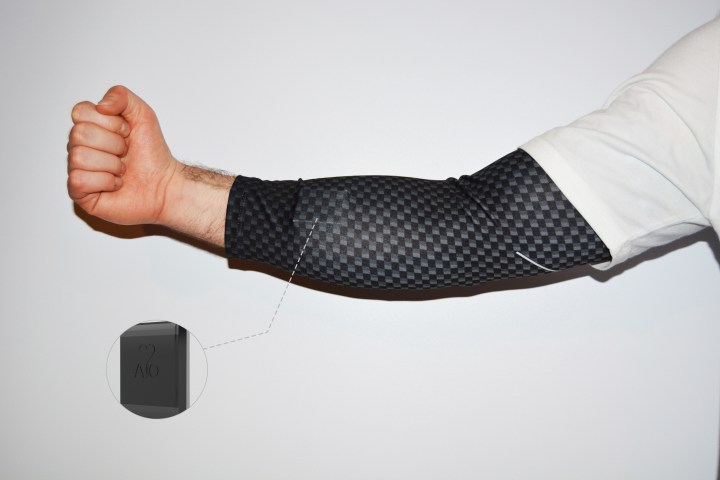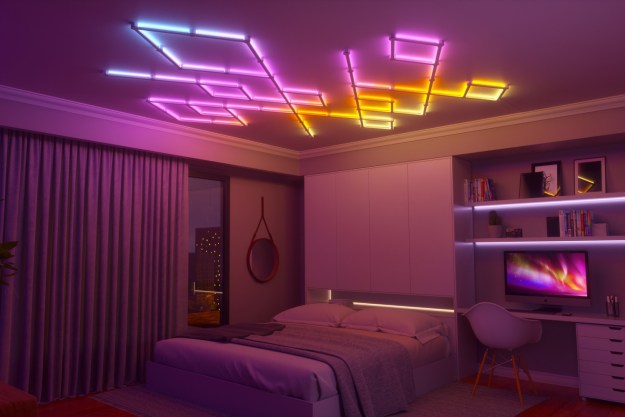
Related Offer: See here for the latest wearable technology in the market
Unlike wrist wearables, which take up less real estate and touch a smaller surface area of your skin, the Komodo AIO Smart Sleeve and AIO M.D. manage to collect and report crucial health data including your heartbeat, sleep analysis, and ECG “more accurately than traditional wrist wearables” by design.
The antimicrobial sleeve features a small tracking device that sits squarely against the inside of your forearm, one of the most ideal body parts for collecting your vitals. The AIO then connects to your smartphone by way of Bluetooth Low Energy, and feeds a compatible app important information about your heart rate, your number of steps, distance traveled, and sleep quality. And with its in-app calorie counter and music-control system embedded in the wearable, Komodo believes it’s come up with a device perfect for both athletes and everyday fitness enthusiasts.
“After using regular trackers in my own fitness routine, I found that the wristbands became cumbersome and uncomfortable, leading to inaccuracies in their reporting. AIO solves this problem by fusing the tracker to a consistent location on the arm for more precise data,” said Komodo founder Elvis Goren. “I also wanted the sleeve to be both visually appealing and practical so users can wear it all day — not just during a workout. Komodo is excited to introduce this superior wearable and its capabilities to the consumer market for the first time.”
Part of these capabilities include an electrocardiogram (ECG) sensor, which allows the AIO M.D. sleeve to measure the heart’s electrical activity. The M.D. is the only wearable currently available with an ECG, as sensors must make contact with two points on the body in order to function. With the sleeve, however, one sensor is placed on the wrist, and the other on the inside of the bicep, which allows wearers to ascertain a more complete picture of their health.
“This product is ideal for seniors and those who make frequent trips to the doctor to monitor their hearts,” adds Goren. “AIO M.D. saves your history within the app so you can view trends over time, notifying users of heart irregularities. We’re even working on algorithms that will detect early signs of heart inflammation and coronary heart disease, as well as record users’ stress levels — a convenient and invaluable tool for those who are monitoring their blood pressure.”
If you’re looking to add to your wearable collection (or start one anew) you can currently pre-order the AIO Smart Sleeve on Kickstarter for $75, and AIO M.D. for $99. They’re expected to ship to consumers by this summer, perfect motivation for you to take advantage of that warm weather and start working out.
Editors' Recommendations
- Smart mouthguard to be adopted by World Rugby to help spot head injuries
- Philips Hue expands smart lighting to the great outdoors
- HomeValet launches the Smart Box, a secure container for all your deliveries
- The Lenovo Smart Clock Essential drops Google Assistant for Alexa
- Samsung SmartThings announces new partnerships for smart energy


